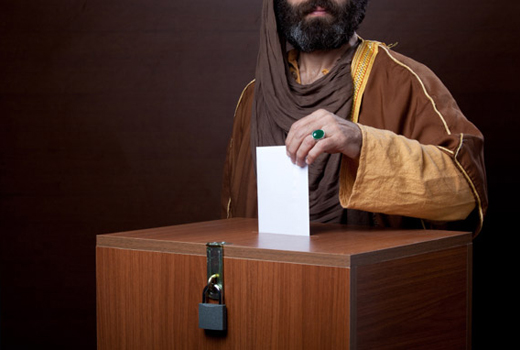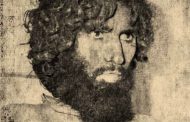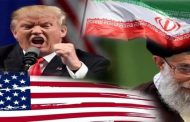A new analysis reveals the link between democracy and Islam, and how the spirit of Islam has been always democratic even if democracy may not necessarily be Islamic.
The relationship between democracy and Islam has been a contested one. While on one hand, there are people who consider democracy as kufr, that is, disbelief, on the other hand, there are people who consider democracy as key to the establishment of Islamic political system. To understand the relationship between democracy and Islam, we first need to understand democracy.
Democracy literally means the rule of the people. It is most basic and popular definition is the rule of the people, by the people and for the people. This means that ultimate rulers are to be the people. Who gets to rule is decided by the people. The manner in which he rules is also decided by the people. Finally, the end or the purpose of rule is also decided by the people. The proponents of the “democracy is kufr” thesis say that it makes people as sovereign instead of Allah. In Islam, sovereignty belongs only to Allah. So they contend that democracy is like “Shirk”, that is, ascribing partners to Allah. This is an argument that looks straight forward and many people fall for it. However this is a very simplistic one, as we shall see.
Whatever the literal meaning of democracy be , there is no such democratic government in the world, or ever has been, where the people are the ultimate sovereign. In fact, all democracies are and have been such that the sovereignty of people has been curtailed; by culture and customs in the past and by the constitutions in the present. What we have is constitutional democracies instead of majoritarian democracies. Democracy as a form of government as it exists today is based upon respecting the will of the people but within the bounds of a constitution.
Let us take the example of India. Can the people, or their representatives make whatever law they wish? The answer is no. Any law which is in contravention to the constitutional principles is liable to be invalidated. How about people amending the constitution itself? The parliament did try to make its amending power supreme in the 1970s. However the Supreme Court has given the basic structure doctrine in the Kesavnanda Bharti case. Any amendment which seeks to change the basic structure of the constitution is liable to be struck down. Similarly in America, no such laws/ amendments can be passed which are unfair or unjust and more generally against the founding principles of American Constitution. Similarly, the 1973 constitution of Pakistan holds that any law which is against the principles of Islam is invalid.
To say that democracy takes sovereignty from Allah and gives it to people is not necessarily true. In an Islamic setting people can choose their representatives, who can then legislate within the bounds set by Shariah. The Quran will be the super constitution and any law against its principles will be liable to be struck down. The legislation enacted can be for new issues and situations. It can also be for applying Islamic principles to particular cases. In modern democracies, legislature passes laws and then the rules under those laws are framed by the bureaucracy, something called as delegated legislation. Similarly, in an Islamic setting delegated legislation can be framed by the elected representatives of the people. This would be under the overall framework of Quran and Sunnah. In monarchies this role is performed by a single person, the monarch. In a democracy, it will be performed by the elected representatives of the people. This is not a case of transfer of sovereignty from Allah to people. Rather, it is a case of transfer of delegated legislative power from a hereditary monarch to the people.
Sovereignty indeed belongs to Allah. But how do we implement that sovereignty on the earth? How do we choose our leaders and rulers? Is it kufr to let the people to choose the rulers? The procedural aspect of democracy is very much in line with the Islamic principles. During the time of the righteous successors (Khulafa e Rashidoon), due deference was given to popular opinion in choosing the ruler. In fact the concept of Shura was well used. The first caliph was chosen in a meeting attended by the notables of Medina amongst the Ansar and the Muhajiroon. The system of making Bayah to the ruler ,which has survived to this day, is an implicit acknowledgement that the ruler should be chosen by the consent of the people. It is apparent that there is nothing wrong in letting the people have the choice of choosing the rulers. However , it is important that only vetted candidates be allowed to run. This vetting is already there in modern democracies. In an Islamic setting, vetting would obviously include piousness, Islamic Knowledge etc.
This was the procedural aspect of democracy, but democracy is not just a procedure. The substantive aspect of modern democracy includes rule of law, civil liberties, equality before law and equal treatment of law, government in the interest of people, non discrimination, absence of arbitrary power, respect of minority rights and so on and so forth. More than its procedural aspect, it is this substantive aspect which gives modern democracy the forceful legitimacy which it is known to have throughout the world. Not only is the substantive aspect of democracy compatible with Islam but indeed Islam has been a pioneer in most of these matters. The righteous caliphs did not consider themselves as rulers but as servants of the Muslim community. Rule of law was such that anyone, Muslim or non Muslim, could drag the caliph of the day to the court and have his justice there and then. A common man could stand up and question the ruler about the source of his new clothes. No discrimination was made on the basis of language, color or ethnicity. Rights of minorities(called as dhimmis) were duly protected. Examples abound but for brevity. And, most of all the basis of rule was consent instead of force. Democracy may not necessarily be Islamic but the spirit of Islam has always been democratic.
Today, democracy has emerged as a moral force in the modern conscience. We find that democracy is compatible with Islam in both its procedural and substantive aspects. CB Macpherson, in his book “In Democratic Theory: Essays in Retrieval”, holds that there is no single monopolistic model of democracy in the world. The western model of liberal constitutional democracy is just one of the models. The democratic centralism of the erstwhile Soviet Union or that of China and so on is another model. Similarly we can have an Islamic model of democracy. Far from being Kufr, such a model would be a procedural exposition of what is already the substantive spirit of Islam.








































admin in: How the Muslim Brotherhood betrayed Saudi Arabia?
Great article with insight ...
https://www.viagrapascherfr.com/achat-sildenafil-pfizer-tarif/ in: Cross-region cooperation between anti-terrorism agencies needed
Hello there, just became aware of your blog through Google, and found ...